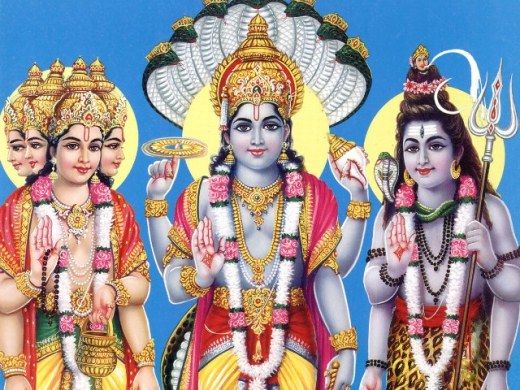Q. 1. Are the demigods obliged to pay back to their worshiper the boon he is asking for? If they are administrators of this universe then how is it that they are offering benedictions? Is this in addition to their normal duty of administration?
Answer by Romapada Swami: Basically, when a living entity wants to enjoy some material facilities through the agency of someone other than the Supreme Lord, then they have an arrangement by which they can approach specific demigods. In fact, Krishna Himself inspires such persons from within their hearts to worship that particular demigod according to their desire. The methods of worship are also prescribed in the Vedas and through such worship if one can appease the demigod, then the demigod bestows the worshiper’s desired goal, in the role of an appointed agent. (Please refer Bg As It Is 7.21 & 7.22 plus purports.)
We should note however that such worship of demigods is to be perfectly executed through perfectly qualified brahmanas without the slightest discrepancy (which is nearly impossible in this age of Kali, where there are no sufficiently qualified brahmanas to perfectly perform these rituals and such little purity!). When yajnas or rituals are flawlessly executed, the demigods are obliged to offer the desired result for that prescribed religious act according to their capacity.
The demigods are not independently powerful to offer anything to anyone on their own. Nevertheless, they do have their minute independence, power and influence, which they derive from the Supreme Lord. We may compare this to a highly placed government officer also having the ability and influence to favor those who approach him/her, by virtue of their position. Similarly the demigods can choose to favor someone who approaches them for shelter or for some material benefit.
Q. 2. Are the demigods dependent on the yajna / puja from their worshipers for their subsistence? What will happen if nobody worships them?
Answer by Romapada Swami: We are supplied with all the necessities of life through the demigods, and in turn we have to offer sacrifices; otherwise one becomes a thief, just as a person who does not pay his taxes. The actual beneficiary of all those sacrifices, however, is Lord Vishnu, not the multi-demigods. By propitiating Him, the demigods are automatically pleased.
For one who cannot understand the Supreme Personality of Godhead, or is simply unwilling to surrender to Him due to having too many attachments to material and sensual desires, sacrifices to demigods is recommended. But just as they are authorized supply agents on behalf of the Lord, in the same way they are like the tax collectors who collect our worship on behalf of the Lord. The tax collector does not misappropriate the taxes but simply offers them to the government, and he is in turn well maintained by the government. Similarly, Krishna is the actual maintainer of all living entities, including the demigods. Performance of sacrifices is recommended for our own benefit, and giving it up is our own loss. But sacrifices mutually benefit both – humanity is pleased by profuse supply of necessities and the demigods are pleased by discharging their duty on behalf of the Lord. (Cf. Bg 3.11, 3.12)
Besides, even if the whole population becomes atheistic, there will always be pious persons, if not on the earth planet, at least in the upper planetary systems (such as the rishis, siddhas, caranas etc) and they also perform sacrifices to the administrative demigods. And even though the ritualistic worship of various demigods has declined to almost nil, by the performance of sankirtana yajna, the yuga dharma for this age by the followers of the Lord Chaitanya, all living entities including the demigods will all be satisfied.
Q. 3. What is the fate of demigods after their duration of rule over the occupied post is over?
Answer by Romapada Swami: Their fate will be based upon their Karma. If they have accumulated further pious or devotional credits, such demigods can ascend to even higher planetary systems such as Tapoloka, Janaloka, up to Brahmaloka. These planets are inhabited by highly advanced pious souls and they have a chance there to perfect their lives. However, generally the heavenly regions are a place of unlimited sense enjoyment, not one of spiritual cultivation. For example, we don’t generally find vacationers going to the exotic tourist spots on a spiritual quest! Such people are busy extravagently spending their hard-earned money. When one thus depletes their pious credits in enjoying heavenly opulence, they then fall back again to earthly realm to continue their karmic cycle. Ksine punye martya lokam visanti. (Cf. Bg 9.21)







